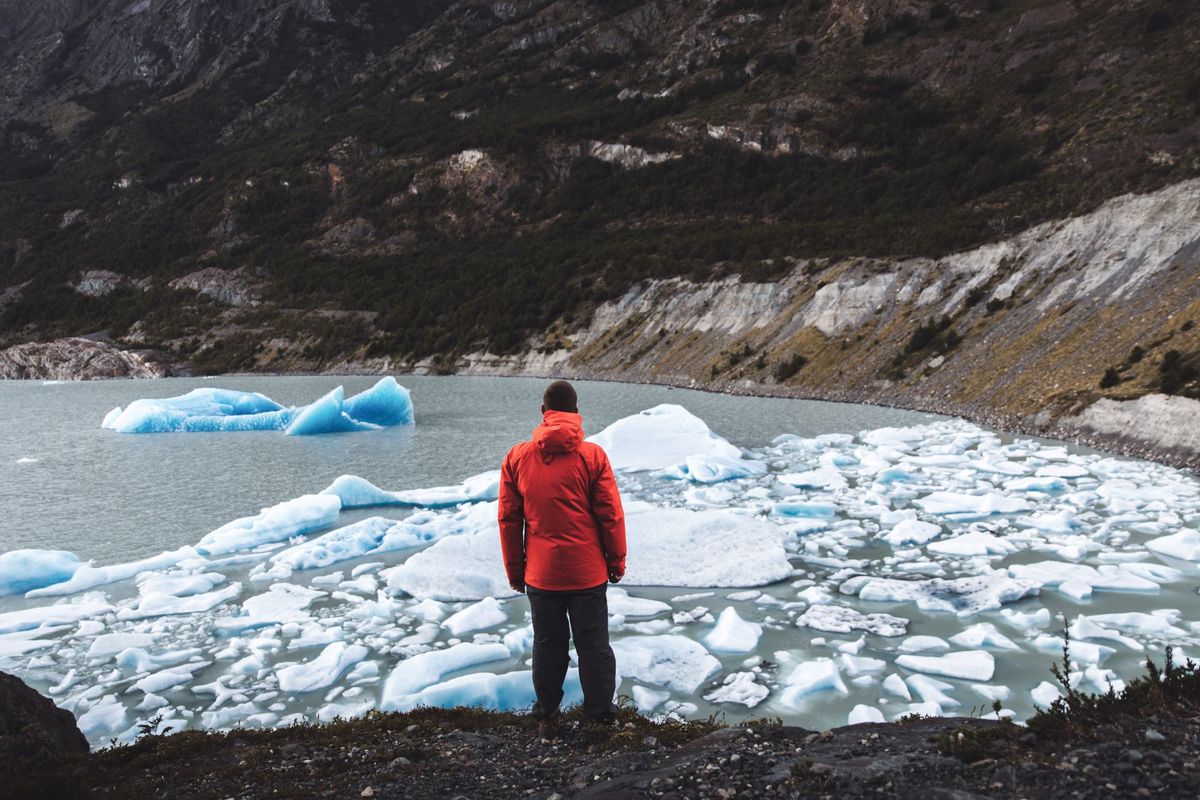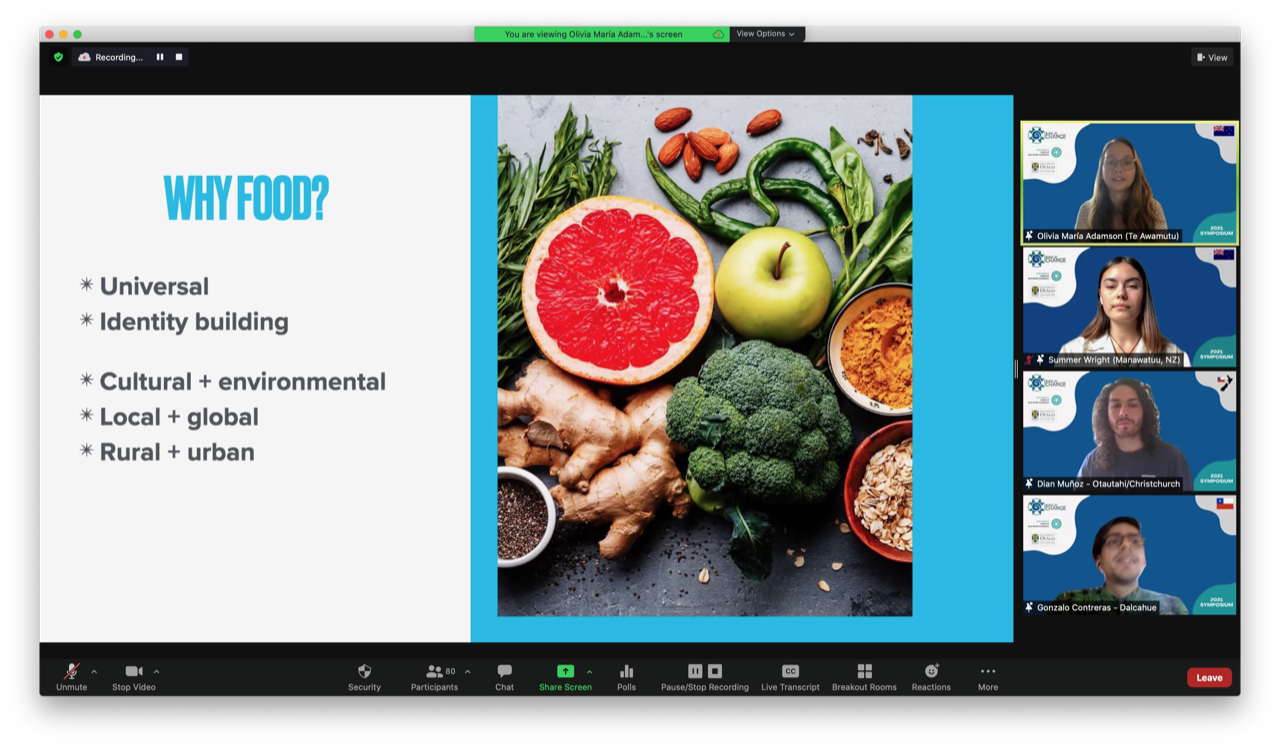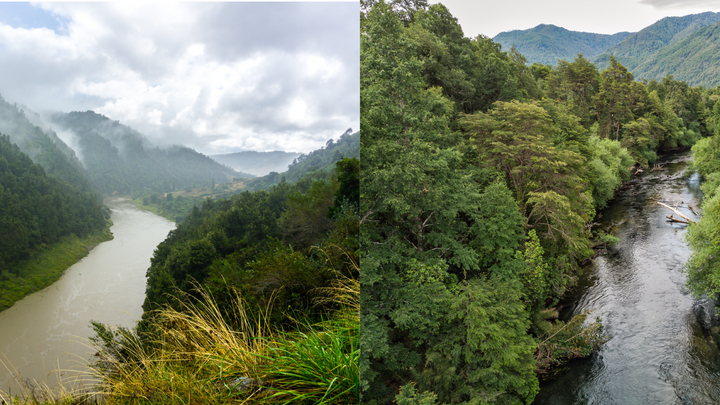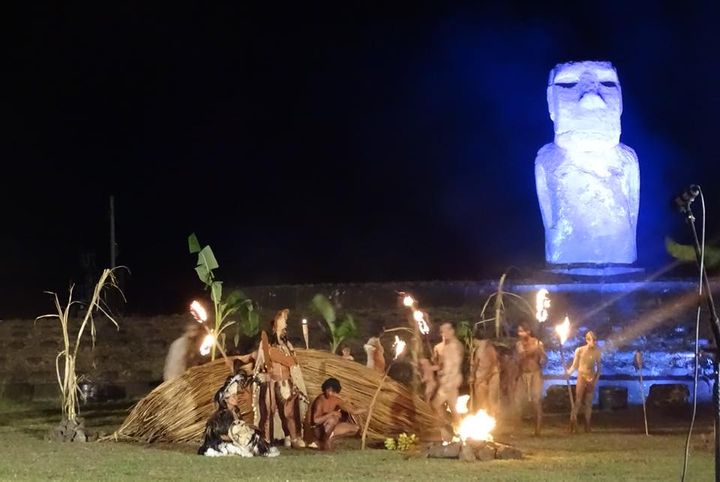Listening in on The Winds of Change
Sarah White gives a personal account of her experience reporting on the Winds of Change programme, as part of her internship under the University of Otago's Science Communication postgraduate certificate programme.

Sarah White gives a personal account of her experience reporting on the Winds of Change programme, as part of her internship under the University of Otago's Science Communication postgraduate certificate programme.
I watched the screen languidly as the blue circle spun around. My mouth was tilted down in a mundane frown, brow furrowed in frustration from the slow Wifi; it was my fourth call of the day, and I was consumed with zoom fatigue.
Then I heard it, the sweetest sound my ears could have welcomed: “Hola?”. It was hello, in Spanish, framed as a question and asking if anyone else was out there in cyberspace. Slowly, more and more voices chimed in, accents from Chile, Britain, Australia, Asia, and New Zealand. I added to the chorus with a “hey, everyone” in my casual American greeting.
We were gathering as the Winds of Change, a programme created from the Latin America Centre of Asia-Pacific Excellence (CAPE), designed to be a catalyst for collaboration. The goal: fight climate change. Led by academics at the University of Otago, the program brings together New Zealand and Chilean participants to investigate common climate change issues and share strategies that can be used to mitigate and reduce the impact of environmental challenges.
There and back (online) again
I was joining in on the call as a distance student at the University of Otago, completing coursework from the comfort (and isolation) of my small apartment in California, USA. I initially visited New Zealand in December of 2019 after leaving my job in environmental compliance to explore my passion for science writing; my travels led me throughout the South Island to the lovely city of Dunedin, where I visited a friend studying for a PhD in Marine Science. Coincidentally, this university had a graduate program for science communication that seemed to be exactly what I was looking for. Sadly, I was already in the states when I made the decision to pursue this degree, which happened to coincide with the global pandemic. I was not able to return to the country for my studies and so, like many other students around the world, I had to find other means of staying connected.
The participants of Winds of Change also had to adapt to the global changes. Due to travel restrictions set on by the worldwide pandemic, the programme shifted entirely online. This resulted in several unseen benefits, including the involvement of more participants (and the ability to bring on an intern - me!).
My requirement for the internship paper at the University of Otago involved listening in on the Winds of Change sessions to produce written content and broaden the impact of the programme. The participants had already attended workshops about climate science when I joined the conversation, and now they were working in small groups on a project of their own. My goal was to share the collaboration taking place within the participant’s projects and broadcast the outcomes.
I joined the workshops to observe, but found myself deeply inspired, excited, and motivated. As I listened to stories of people acting against climate change in powerful ways, the positive spirit became infectious!
A confluence of perspectives
The projects were as diverse as the challenges that Chile and New Zealand share, from restoring wetlands to prevent catastrophic flooding to creating lesson plans for younger generations to understand the risks and solutions of water scarcity. Others sought to protect kelp forests or redefine food sovereignty for local communities. These initiatives flowed together to form a confluence of interests, expertise, and cultural perspectives. Eight groups had been created, each a mix of individuals from Chile and New Zealand. The participants offered their own skillsets, ranging from educators, researchers, future business owners, and aspiring politicians. The thread of commonality between all these projects was the benefit these activities would bring to Chile, New Zealand, and ultimately, the rest of the world.

The Winds of Change encourages a holistic approach to climate adaptation. The programme embraces cross-cultural collaboration by forming an alliance of students, activists, scientists, indigenous people, and thought leaders; the result is generating better solutions to tackle our common climate challenges.
Although home to different cultures, Chile and New Zealand have a rich heritage of indigenous knowledge and are striving to incorporate the voice of native peoples into climate change policy. The participants actively sought out people in both countries working on the ground for change and worked diligently to showcase and share their work to inspire a larger community.
From my position as a fly on the wall throughout the Winds of Change workshops, I learned a great deal about opportunities within climate finance, sustainable business, and environmental policy. As the climate science was reaffirmed, groups workshopped on ways they could educate and bring solutions to the broader public. The holistic approach of the program included voices in education, the nonprofit sector, and indigenous communities, which created cohesion and inclusion. The words of the Winds of Change participants reverberated from the walls, reflecting accents from different corners of the world.
Although I sat in my room confined by a pandemic, I listened to stories of immense challenges experienced by communities, brought on by climate change; my problems grew smaller and the world became larger.
Collaborative communities bring hope
My internship experience gives me many reasons to be optimistic about our future. Communities across the world are gathering, despite all obstacles, and sharing knowledge. People are enacting change on local scales: within community gardens, shared watersheds, and resident businesses. Cross-cultural discussions are not only happening, but they are growing; in the past, the absence of these discussions left profound gaps in proposed climate change solutions.
Similarly to COVID, climate change is something we all feel, whether we are in Santiago, Waikato, or the California. The pandemic showed us that regardless of the physical distance that lies between us, we can still make connections and find solutions when we work together. As members of a global community, we have the obligation to collaborate and tackle the challenges of climate change. Programs like the Winds of Change show us that, given the opportunity to connect, communicate, and learn together, we can address the challenges that we face as a global community.
Sarah White, Centre for Science Communication, University of Otago. Sarah is based out of California, USA and recently completed a Postgraduate Certificate in Science Communication from the University of Otago via distance. As a writer and communicator, her goal is to promote environmental technology, sustainable organizations, regenerative communities, and climate change policy. Sarah hopes to continue educating the broader public on the positive impact born from intelligent networks, collaborative efforts, and the mission to live in balance with nature.
Feature image: We are not as isolated as we think. Torres Del Paine National Park in Patagonia, Chile photo: iStock/Anastasiia Shavshyna



